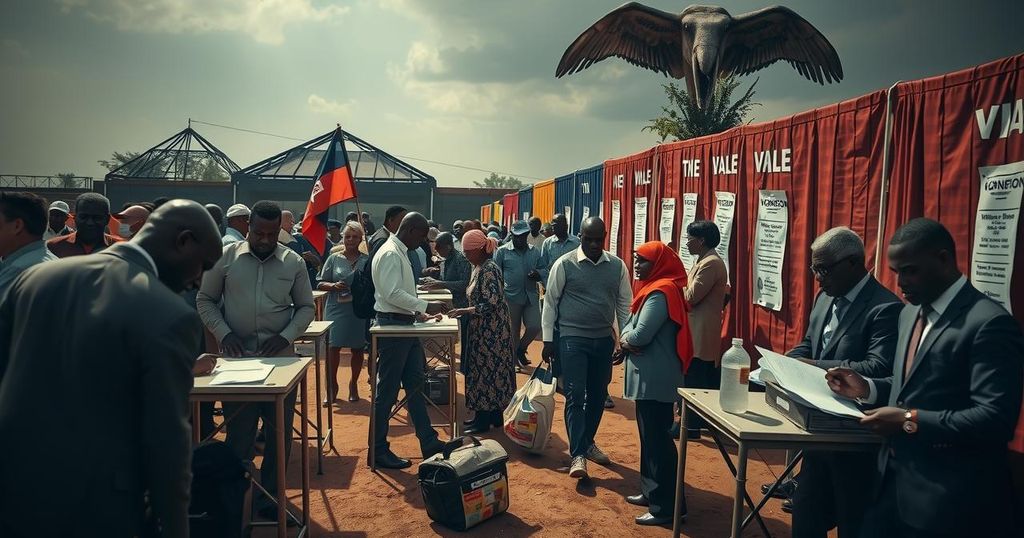Namibia’s presidential and parliamentary elections have been extended due to significant “irregularities” involving a shortage of ballot papers and malfunctioning equipment. The opposition IPC seeks to challenge Swapo’s decades-long dominance, while a frustrated youth demands change. The electoral chaos mirrors wider political instability in the Southern African region.
Namibia is experiencing turmoil following the extension of its presidential and parliamentary elections due to reported “irregularities” that hindered the voting process. The Electoral Commission of Namibia (ECN) has decided to keep polling stations open until Saturday night, acknowledging significant logistical issues such as insufficient ballot papers and malfunctioning electronic devices. This has caused long queues and considerable frustration among voters.
The opposition party, Independent Patriots for Change (IPC), led by presidential candidate Panduleni Itula, is contesting the ruling party South West Africa People’s Organisation (Swapo), which has maintained a dominance over Namibian politics since independence in 1990. Despite their disapproval of the election’s handling, the IPC is urging citizens to follow through and cast their votes. Itula remarked on the numerous irregularities but insisted that citizens must comply with the ECN’s directives.
The election’s significance is highlighted by the candidacy of Netumbo Nandi-Ndaitwah, Swapo’s current vice president, who is vying to become Namibia’s first female head of state. However, Nandi-Ndaitwah confronts a disillusioned youth demographic seeking better opportunities amid widespread inequality. Observers speculate whether Swapo might endure a fate similar to other liberation parties in Southern Africa that have faced electoral backlash.
Political unrest in Namibia coincides with increasing tensions in Mozambique, where allegations of electoral fraud have spurred violent protests against the ruling Frelimo party. As Namibians navigate through these electoral challenges, the outcome remains uncertain, particularly in light of the population’s growing frustrations with the status quo.
Namibia’s political landscape has been dominated by the South West Africa People’s Organisation (Swapo) since the country gained independence from colonial rule in 1990. The current election cycle is critical as it marks a potential shift in power, especially with the rise of the Independent Patriots for Change (IPC), an opposition party aiming to unseat Swapo. Voter discontent is fueled by high levels of inequality and a lack of job opportunities, impacting the younger generation profoundly. The country’s electoral process, however, is under scrutiny due to operational difficulties faced during voting, raising questions about the integrity of the upcoming election results.
The turmoil surrounding Namibia’s election underscores the significant challenges facing its electoral system and the growing frustrations of its populace. The extension of the voting period, necessitated by logistical failures, reflects deeper issues within the electoral process. As the opposition gains momentum, the potential for a shift in political power is palpable. The resolution of these electoral difficulties will be crucial in determining the future of governance in Namibia, amidst a backdrop of regional political unrest.
Original Source: www.aljazeera.com






